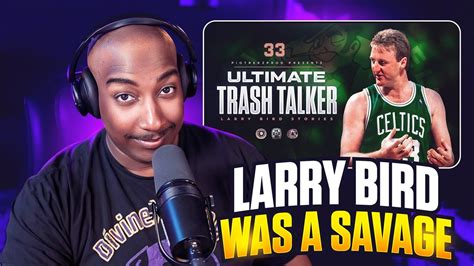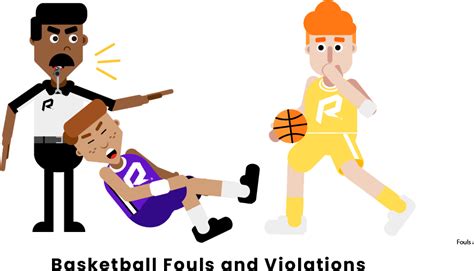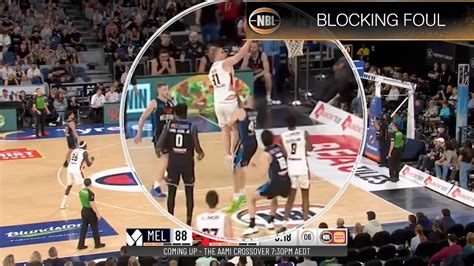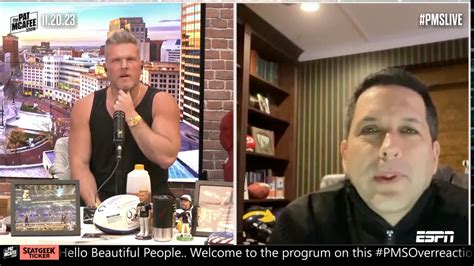
Larry Bird, known for his legendary trash-talking, reportedly dismissed concerns about Detroit Pistons player Dennis Rodman potentially scoring on him during the 1987 Eastern Conference Finals with a nonchalant, “I could care less, let him have one!” This anecdote, recounted by former Celtics teammate Cedric Maxwell, highlights Bird’s unparalleled confidence and psychological warfare tactics on the court.
Larry Bird’s reputation as one of the NBA’s most formidable trash-talkers is further cemented by a recently resurfaced anecdote detailing his dismissive attitude toward defensive assignments, even against a tenacious player like Dennis Rodman. Cedric Maxwell, Bird’s former teammate on the Boston Celtics, shared the story, revealing Bird’s supreme confidence and his ability to use psychological tactics to his advantage. The incident allegedly occurred during the 1987 Eastern Conference Finals, a pivotal series between the Celtics and the Detroit Pistons, a rivalry defined by intense physicality and fierce competition.
According to Maxwell, the Celtics coaching staff was strategizing how to contain Rodman, then a rising defensive force for the Pistons. Maxwell recalls the coaches emphasizing the importance of preventing Rodman from scoring on Bird. Bird’s response, “I could care less, let him have one!” showcased his unshakeable self-assurance and suggested that he was more concerned with his overall performance and the team’s success than with preventing a single opponent from scoring.
This anecdote provides insight into Bird’s mindset during a period of intense competition. The 1987 Eastern Conference Finals was a hard-fought series that went the distance, with the Celtics ultimately prevailing in seven games. The Pistons, led by Isiah Thomas, Joe Dumars, and the emerging Rodman, were a physical and determined team that pushed the Celtics to their limits. Bird’s ability to remain calm and confident under pressure was a key factor in the Celtics’ victory.
The statement “I could care less, let him have one!” is significant for several reasons. First, it highlights Bird’s unwavering belief in his offensive abilities. He was confident that he could outscore Rodman and make a greater overall contribution to the game. Second, it demonstrates Bird’s willingness to prioritize the team’s success over individual matchups. He understood that winning the game was more important than preventing Rodman from scoring. Third, it underscores Bird’s mastery of psychological warfare. By dismissing Rodman’s offensive threat, Bird may have been attempting to gain a mental edge over his opponent.
Bird’s trash-talking was not limited to dismissive remarks about his opponents. He was also known for making bold predictions and backing them up with his play. He would often tell opponents what he was going to do before doing it, and then execute his plan flawlessly. This combination of skill, confidence, and psychological gamesmanship made him one of the most feared and respected players in NBA history.
Cedric Maxwell’s recounting of this anecdote adds another layer to the legend of Larry Bird. Maxwell, a key member of the Celtics teams of the 1980s, played alongside Bird for several seasons and witnessed firsthand his competitive spirit and trash-talking prowess. Maxwell’s credibility as a firsthand witness lends further weight to the story.
The rivalry between the Celtics and the Pistons in the late 1980s was one of the most memorable in NBA history. The two teams met in the Eastern Conference Finals three times in four years, with the Celtics winning in 1985 and 1987, and the Pistons winning in 1988. These series were characterized by intense physicality, hard fouls, and trash-talking. Players like Bird, Thomas, Kevin McHale, and Bill Laimbeer became known for their aggressive play and their willingness to do whatever it took to win.
The anecdote about Bird’s comment to the coaching staff not only speaks to his competitive nature but also to the different philosophies surrounding defense at the time. While today’s NBA emphasizes switching and help defense, the focus in the 1980s was often on individual matchups. Bird’s confidence in his ability to handle Rodman one-on-one reflects this emphasis. It also shows that Bird was not afraid to take risks and trust his instincts.
The legacy of Larry Bird extends beyond his on-court accomplishments. He is remembered as a player who embodied the spirit of competition and who always played with passion and determination. His trash-talking was a part of his persona, and it added to the excitement and drama of the game. The anecdote about his dismissive attitude toward Rodman serves as a reminder of his unique personality and his unparalleled confidence.
Moreover, Bird’s influence on the game can still be felt today. His passing ability, shooting touch, and basketball IQ have inspired generations of players. His competitive spirit and his willingness to do whatever it takes to win continue to be admired. The story about his trash talk serves as a reminder of the mental aspect of the game and the importance of confidence and psychological warfare.
The 1987 Eastern Conference Finals are regarded as a classic series in NBA history. The Celtics and the Pistons were two of the best teams in the league, and their rivalry was intense and personal. The series was filled with memorable moments, including Bird’s steal and game-winning shot in Game 5 and the Pistons’ dominant performance in Game 6. The Celtics ultimately won the series in seven games, but the Pistons would go on to win back-to-back championships in 1989 and 1990.
The anecdote about Bird’s comment on Rodman provides a glimpse into the atmosphere surrounding those games. The players were under immense pressure, and they were constantly trying to gain an edge over their opponents. Bird’s trash talk was just one example of the psychological warfare that took place on the court.
In conclusion, the anecdote about Larry Bird’s dismissive attitude toward Dennis Rodman highlights his unparalleled confidence, his mastery of psychological warfare, and his unwavering commitment to team success. The story, recounted by former teammate Cedric Maxwell, provides further insight into Bird’s legendary status as one of the NBA’s most formidable players and trash-talkers. It underscores his unique personality and his lasting impact on the game. Bird’s legacy extends beyond his on-court accomplishments; he is remembered as a player who embodied the spirit of competition and who always played with passion and determination.
Frequently Asked Questions (FAQ)
1. What was the context of Larry Bird’s “I could care less, let him have one!” comment?
The comment was reportedly made during a coaching strategy session before a game in the 1987 Eastern Conference Finals between the Boston Celtics and the Detroit Pistons. The Celtics coaching staff was discussing how to defend Dennis Rodman, then a young and energetic player for the Pistons. When the coaches emphasized preventing Rodman from scoring on Bird, Bird nonchalantly dismissed their concerns, stating “I could care less, let him have one!” This showed his confidence and his belief in his overall contribution to the game exceeding any potential points Rodman might score on him.
2. Who revealed the anecdote about Larry Bird’s trash talk?
Cedric Maxwell, a former teammate of Larry Bird on the Boston Celtics, shared the anecdote. Maxwell played alongside Bird for several seasons in the 1980s and witnessed firsthand his competitive spirit and trash-talking abilities. His account lends credibility to the story, as he was a direct witness to the events surrounding it. Maxwell’s role as a teammate and insider provides a reliable perspective on Bird’s personality and behavior within the team dynamic.
3. Why is this particular instance of trash talk considered significant?
This instance is significant because it highlights several key aspects of Larry Bird’s personality and playing style. First, it showcases his unshakeable confidence in his offensive abilities and overall contribution to the game. Second, it demonstrates his willingness to prioritize team success over individual matchups, suggesting that he was more concerned with winning the game than with preventing a single opponent from scoring. Third, it underscores his mastery of psychological warfare, as his dismissive remark may have been intended to gain a mental edge over Rodman and the Pistons. The anecdote encapsulates Bird’s competitive spirit, strategic thinking, and his unique ability to use trash talk as a tool to influence the game.
4. How did the rivalry between the Celtics and the Pistons influence Larry Bird’s behavior on the court?
The rivalry between the Celtics and the Pistons was one of the most intense and physical in NBA history, marked by hard fouls, aggressive play, and constant trash talk. This environment undoubtedly influenced Larry Bird’s behavior on the court, encouraging him to use every tool at his disposal, including trash talk, to gain an advantage. The constant pressure and high stakes of the games fueled his competitive spirit and motivated him to push his limits both physically and mentally. The rivalry intensified the psychological aspect of the game, making trash talk a common tactic employed by players on both teams. Bird’s willingness to engage in trash talk can be seen as a reflection of the intense competitive atmosphere that defined the Celtics-Pistons rivalry.
5. What is the broader legacy of Larry Bird, and how does this anecdote contribute to it?
Larry Bird’s legacy extends beyond his statistical achievements and on-court accolades. He is remembered as a player who embodied the spirit of competition, always played with passion and determination, and possessed an exceptional basketball IQ. This anecdote contributes to his legacy by highlighting his unwavering confidence, his mastery of psychological warfare, and his willingness to do whatever it takes to win. It reinforces the image of Bird as a fierce competitor who thrived under pressure and used his intelligence and mental toughness to gain an edge over his opponents. The story serves as a reminder of the mental aspect of the game and the importance of confidence and psychological gamesmanship, solidifying Bird’s reputation as one of the most formidable and memorable players in NBA history.
Expanded Analysis and Background
The context of the 1987 Eastern Conference Finals is crucial to understanding the significance of Bird’s remark. The Celtics and Pistons were locked in a bitter rivalry, with each team representing a different style of play. The Celtics, led by Bird, Kevin McHale, and Robert Parish, were known for their finesse, teamwork, and offensive prowess. The Pistons, on the other hand, were a more physical and defensive-minded team, led by Isiah Thomas, Joe Dumars, and Bill Laimbeer. Dennis Rodman, in his second season, was emerging as a key defensive player for the Pistons.
The series was intensely competitive, with both teams trading blows and engaging in physical play. The Celtics won the series in seven games, but the Pistons would get their revenge in the following years, winning back-to-back championships in 1989 and 1990. The rivalry between the two teams helped define the NBA in the late 1980s and early 1990s.
Bird’s trash talk was a key part of his persona and his competitive strategy. He used it to intimidate opponents, gain a mental edge, and disrupt their focus. He was known for making bold predictions and then backing them up with his play. He would often tell opponents what he was going to do before doing it, and then execute his plan flawlessly.
One famous example of Bird’s trash talk occurred during the 1986 Three-Point Contest. Before the contest, he walked into the locker room and told his competitors, “I’m going to win this thing.” He then proceeded to win the contest, shooting lights out and cementing his reputation as one of the greatest shooters in NBA history.
Another example occurred during a game against the Seattle SuperSonics. Bird told Xavier McDaniel, a tough defender, that he was going to score 40 points on him. McDaniel responded with trash talk of his own, but Bird backed up his words, scoring 40 points and leading the Celtics to victory.
Bird’s trash talk was not always malicious or mean-spirited. Sometimes, it was simply a way to have fun and lighten the mood. He had a knack for making witty and humorous remarks that would catch his opponents off guard.
However, his trash talk could also be cutting and personal. He was not afraid to get under his opponents’ skin and exploit their weaknesses. This made him a formidable opponent and a master of psychological warfare.
Cedric Maxwell’s account of Bird’s comment on Rodman provides a valuable insight into Bird’s mindset during a crucial moment in the 1987 Eastern Conference Finals. It reveals his confidence, his strategic thinking, and his willingness to prioritize team success over individual matchups.
Maxwell’s credibility as a firsthand witness adds weight to the story. He played alongside Bird for several seasons and witnessed firsthand his competitive spirit and trash-talking abilities. His account provides a reliable perspective on Bird’s personality and behavior within the team dynamic.
The anecdote also highlights the different approaches to defense in the NBA during the 1980s compared to today. In the 1980s, the emphasis was often on individual matchups and one-on-one defense. Bird’s confidence in his ability to handle Rodman one-on-one reflects this emphasis.
Today, the NBA emphasizes switching and help defense. Teams are more likely to rotate defenders and double-team opponents. Bird’s comment suggests that he was confident in his ability to defend Rodman without the need for additional help.
The story about Bird’s trash talk also underscores the importance of mental toughness in basketball. The ability to remain calm and confident under pressure is a key attribute of successful players. Bird’s dismissive attitude toward Rodman suggests that he was not intimidated by his opponent and that he was confident in his ability to perform well regardless of the circumstances.
The legacy of Larry Bird extends beyond his on-court achievements. He is remembered as a player who embodied the spirit of competition and who always played with passion and determination. His trash talk was a part of his persona, and it added to the excitement and drama of the game.
Bird’s influence on the game can still be felt today. His passing ability, shooting touch, and basketball IQ have inspired generations of players. His competitive spirit and his willingness to do whatever it takes to win continue to be admired.
The story about his trash talk serves as a reminder of the mental aspect of the game and the importance of confidence and psychological warfare. It is a testament to Bird’s unique personality and his lasting impact on the sport.
The 1987 Eastern Conference Finals are regarded as a classic series in NBA history. The Celtics and the Pistons were two of the best teams in the league, and their rivalry was intense and personal. The series was filled with memorable moments, including Bird’s steal and game-winning shot in Game 5 and the Pistons’ dominant performance in Game 6.
The anecdote about Bird’s comment on Rodman provides a glimpse into the atmosphere surrounding those games. The players were under immense pressure, and they were constantly trying to gain an edge over their opponents. Bird’s trash talk was just one example of the psychological warfare that took place on the court.
The Celtics ultimately won the series in seven games, but the Pistons would go on to win back-to-back championships in 1989 and 1990. The rivalry between the two teams helped define the NBA in the late 1980s and early 1990s.
Bird’s comment, “I could care less, let him have one!” encapsulates his overall approach to the game. He understood that basketball was a team sport, and he was willing to sacrifice individual glory for the sake of the team’s success. He also understood the importance of mental toughness and psychological warfare. By dismissing Rodman’s offensive threat, he may have been attempting to gain a mental edge over his opponent and the Pistons as a whole.
Larry Bird’s contributions to the game of basketball extend far beyond his statistical accomplishments. He was a transformative player who helped elevate the sport to new heights. His passion, skill, and competitive spirit made him one of the most beloved and respected players in NBA history. His trash talk was just one facet of his complex and compelling personality.
The anecdote about his dismissive attitude toward Rodman serves as a reminder of his unique personality and his unparalleled confidence. It is a testament to his lasting impact on the game and his enduring legacy as one of the greatest players of all time.









